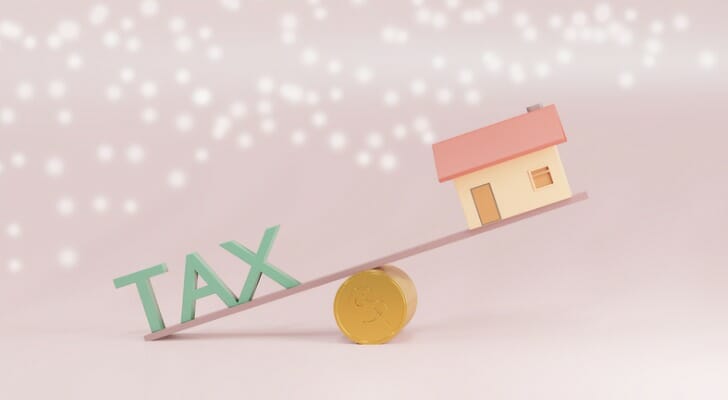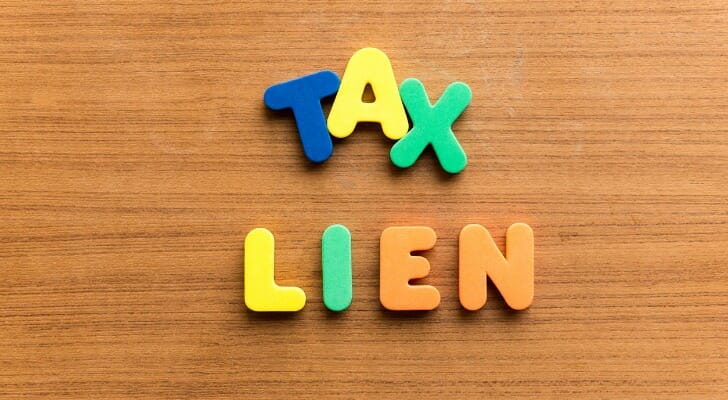 Investing in tax liens and tax deeds offers a profitable way to diversify through real estate. While both involve unpaid property tax debt, they differ in structure and benefits. Choosing between them—or investing in both—depends on your goals and risk tolerance. Understanding their distinctions is essential before proceeding.
Investing in tax liens and tax deeds offers a profitable way to diversify through real estate. While both involve unpaid property tax debt, they differ in structure and benefits. Choosing between them—or investing in both—depends on your goals and risk tolerance. Understanding their distinctions is essential before proceeding.
A financial advisor can help you decide whether investing in tax liens or tax deeds is a good fit for your portfolio.
What Is a Tax Lien?
A tax lien is a lien that’s placed against a piece of property in connection with a debt, typically unpaid property taxes. When a property owner fails to pay his tax obligations the local tax authority can place a lien against the property itself.
Tax liens can be placed against residential, investment or business properties. Once a lien is in place, the property owner cannot sell or refinance the property without first paying off the associated debt. The purpose of a tax lien is to force the property owner to pay what’s owed. Similarly, the IRS can use tax liens to compel taxpayers to pay up when they owe back taxes.
Tax Lien vs. Tax Lien Certificate
A tax lien represents an outstanding debt owed by a property owner. If that property tax debt goes unpaid long enough, the local tax authority can issue what’s known as a tax lien certificate. The holder of a tax lien certificate has the right to collect interest owed on the underlying debt.
Here’s how it works for investors. The local tax agency holds a tax lien certificate auction. Certificates are auctioned off to the highest bidder. An investor buys one or more tax lien certificates and pays the tax debt owed in full. For the property owner to clear the debt, they must repay the investor the original tax bill amount plus interest.
The investor doesn’t own the property; they simply own a right to collect interest on the tax debt. The amount of interest they can collect is based on state law. Tax lien certificate investing is only possible in states that allow for the public sale of property tax debts.
What Is a Tax Deed?
A tax deed offers ownership rights to an underlying property. Like tax liens, tax deeds can be issued when a property owner fails to keep up with their property tax obligations. And like tax liens, tax deeds can be auctioned off to the highest bidder.
Tax deed auctions can be held online or in person. The highest bidder wins the right to own the property. If state law permits a redemption period, the property owner has an opportunity to pay off the outstanding tax debt, along with any penalties, fees or interest due. If the property owner pays what’s owed, they can get the property back.
If there is no redemption period or the property owner fails to pay, the property then belongs to the winning bidder. At that point, they can decide what to do with the property (i.e. sell it, use as a rental property, live in it themselves, etc.). Meanwhile, any debts or encumbrances associated with the property are cleared.
Tax Lien vs. Tax Deed: What’s the Difference?

The main differences between a tax lien vs. tax deed lie with what rights are conveyed to the individual who wins either one at auction. If you place a winning bid on a tax lien certificate, you’re obligated to pay off the tax debt. But you have the right to collect interest payments on the debt, assuming the homeowner pays it off.
In Florida, for example, the rate for tax lien certificates can range from 0% to 18%. In Alabama, the tax lien interest rate is 12% annually. Other states may set the bar higher or lower. But this is essentially passive income you can collect since you don’t own the property and are, therefore, not obligated to do or pay anything about maintenance or upkeep.
With tax deed investing, you’re bidding on ownership interest in the property. So instead of collecting interest payments, the end goal is to own the property itself. Once you own the property, you can decide whether to:
- Fix it and flip it
- Rent it out
- Sell it to another investor
- Use it as a primary or secondary residence for yourself
Tax deed investing is an active investment since you’re actively managing the property once ownership is transferred to you. In addition to being more time-intensive than tax lien certificate investing, it can also require a larger investment of capital.
When you’re buying tax lien certificates, it’s possible to invest with only a few hundred or a few thousand dollars. Tax deeds typically represent a larger investment, as you may incur additional costs on top of the outstanding tax debt. If you plan to flip a property, for example, that might require investing $10,000, $20,000 or more into it first to get it ready for sale.
Tax Lien vs. Tax Deed: How to Invest
Tax lien certificates and tax deeds aren’t something you can buy and sell through an online brokerage account the way you could with stocks or exchange-traded funds. If you want to invest in tax liens or tax deeds, you’ll first need to find out whether tax debts are sold at auction where you live. Your city or county tax agency should be able to tell you if the sale of tax debts is permitted.
The next step is locating a public auction for tax lien certificates or tax deeds. Again, your local tax authority should be able to offer a timetable of upcoming auctions, including whether they’re online or offline events.
Before you invest, consider whether a tax lien or tax deed is better suited to your investment portfolio based on your goals, risk tolerance and how much time or money you want to invest. Tax deed investing may require you to put in more time and money. But you could potentially see a larger return than you might with tax lien certificates.
It’s also important to know the risks. With tax lien certificates, the chief risk is that the property owner won’t pay the taxes owed. If they don’t pay, then you don’t get to collect any interest. With tax deeds, the risks may be more involved as you need to be fairly certain that you’ll be able to dispose of the property according to your goals after the fact.
Going back to a fix-and-flip example, you’d want to weigh how much you’d need to invest to get the home ready for sale. You’d also need to consider the current market environment for that area and what comparable properties are selling for. Performing your due diligence as you would with any other investment can help you weigh the potential risks against the rewards.
Bottom Line

Tax lien investing and tax deed investing share some things in common but they aren’t exactly alike. If you’re interested in branching out your portfolio to include real estate, either one may be worth considering. However, it’s important to remember to note what sets tax lien vs. tax deed investing apart so you can choose the option that best aligns with your goals.
Tips for Investing
- Aside from tax liens and tax deeds, there are other ways to invest in real estate that don’t necessarily require you to own property. Real estate ETFs, for example, allow you to invest in a collection of real estate securities without having to don a landlord’s cap. You might also consider a real estate investment trust (REIT) if you’re looking for dividend income from property investments. You can invest in publicly traded REITs or real estate ETFs through an online brokerage account.
- Consider talking to a financial advisor about whether investing in tax liens or tax deeds could be a good fit for you. Finding a financial advisor doesn’t have to be hard. SmartAsset’s free tool matches you with up to three vetted financial advisors who serve your area, and you can have a free introductory call with your advisor matches to decide which one you feel is right for you. If you’re ready to find an advisor who can help you achieve your financial goals, get started now.
Photo credit: ©iStock.com/izusek, ©iStock.com/~UserGI15994093, ©iStock.com/Sohel_Parvez_Haque